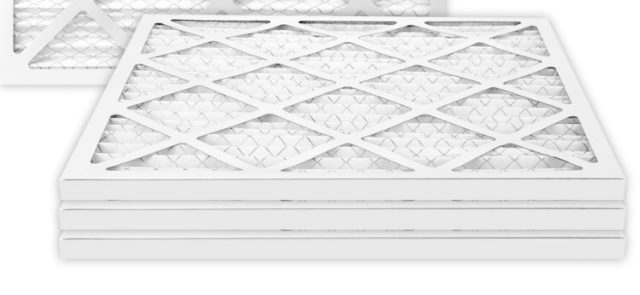Air quality has become a critical issue globally, with nine out of ten people breathing polluted air, resulting in a staggering 7 million deaths annually due to air pollution-related causes. The consequences of poor air quality are severe, contributing to up to a third of deaths from stroke, lung cancer, and heart disease. The ubiquity of air pollution sources poses a significant challenge, as microscopic pollutants infiltrate our respiratory and circulatory systems, causing harm to the lungs, heart, and brain. Regardless of location, there is no escape from these pollutants. As individuals breathe, the intake of oxygen in the alveoli is accompanied by the discharge of high concentrations of carbon dioxide and other toxic gases, emphasizing the pervasive nature and impact of air pollution on human health.
Understanding Air Quality and Its Impact:
Air quality quantifies the presence of pollutants in the atmosphere, encompassing particulate matter, ozone, nitrogen dioxide, sulphur dioxide, and carbon monoxide. The adverse impact of these pollutants extends to respiratory and cardiovascular health, potentially causing conditions like asthma, bronchitis, and heart disease. There are 5 overlooked factors contributing to home air pollution, each of which is often easily dismissed.
Mental Health
Insufficient sleep can influence mood, but inadequate air quality is also linked to anxiety, depression, and other mental health issues. Air pollution can disrupt brain networks, heightening the risk of depression. The World Health Organization reports that approximately 93% of children under 15 (1.8 billion children) globally breathe highly polluted air, jeopardizing their health and development. If unaddressed, this exposure has the potential to manifest as mental health problems in adulthood.
Cardiovascular Health
Air pollution doesn’t limit its impact on the respiratory system alone. Fine particulate matter can enter the bloodstream, contributing to the development of cardiovascular diseases. Long-term exposure to air pollution has been linked to an increased risk of heart attacks, strokes, and other cardiovascular complications.
General Well-being
Poor air quality extends beyond specific health issues, impacting overall well-being. Common symptoms such as fatigue, headaches, and difficulty concentrating are associated with pollutant exposure. Prolonged exposure may result in chronic health problems, underscoring the importance of proactive measures to protect our health.
Irritation to Your Eyes and Nose
Poor indoor air quality not only affects physical comfort but can also lead to health issues. Irritants like smoke, dust, pollen, and chemical fumes can contribute to respiratory problems and exacerbate existing conditions such as allergies and asthma. Additionally, prolonged exposure to indoor air pollutants has been linked to more severe health concerns, emphasizing the critical importance of addressing and improving the quality of the air we breathe in enclosed spaces. Taking proactive measures, such as proper ventilation, air purification systems, and regular maintenance, is essential for creating a healthier indoor environment and safeguarding our well-being.
What Can You Do to Improve Your Indoor Air Quality?
Take control of your indoor environment by regularly cleaning and dusting, using air purifiers, and ensuring proper ventilation. By incorporating these practices, you create a healthier living space, minimizing the impact of pollutants on your well-being.
Keep All Your Vents Clean and Free of Dust
Maintaining a clean and efficient central air conditioning system is crucial for optimal performance. Over time, vents can accumulate pet hair, dust, and various particles, affecting the quality of conditioned air circulated in your home. Fortunately, cleaning these vents is a straightforward and cost-effective task. Simply acquire vent covers, install them over the vents, and use a vacuum cleaner to efficiently remove any debris. This process enhances the system’s efficiency and contributes to better indoor air quality by preventing the circulation of allergens and pollutants. Taking these simple steps ensures that your central air conditioning system operates effectively, promoting a healthier and more comfortable living environment for you and your family.
Use a Kitchen Exhaust Fan
Kitchen exhaust fans play a crucial role beyond removing oven emissions; they enhance overall air circulation and mitigate moisture buildup, preventing harmful mould growth. These fans are particularly beneficial when cooking with a gas stove, effectively eliminating fumes that can trigger asthma and allergies. By actively removing pollutants and enhancing ventilation, kitchen exhaust fans contribute to creating a healthier indoor environment. Regular use of these fans not only improves air quality but also ensures a comfortable and safe kitchen space, addressing both immediate concerns like fumes and long-term issues such as mould-related health hazards. Investing in the proper utilization of kitchen exhaust fans is a proactive step towards fostering a healthier living space and preventing potential respiratory and mould-related health issues.
Consider an Air Scrubber
Enhance indoor air quality with the addition of an air scrubber, a prudent investment for purifying your environment. Utilizing UV light technology, air scrubbers effectively eliminate contaminants from your temperature-treated air. This device seamlessly integrates with your existing system, requiring minimal installation. For more information, consult with an HVAC technician to explore the benefits of incorporating an air scrubber into your indoor air purification strategy.
If you initiate a search, you’ll find an array of 20x20x1 air filters designed to optimise and enhance your indoor air quality.
Reducing Indoor Pollutants
Exercise caution with indoor activities that contribute to air pollution. Refrain from smoking indoors, opt for non-toxic cleaning products, and limit the use of candles and incense, which can release pollutants into the air. These conscious choices contribute to maintaining a healthier indoor environment, reducing exposure to harmful substances and promoting overall well-being.
Air Quality Monitoring
With an air quality monitor, you gain insights into the levels of pollutants such as particulate matter, VOCs, and CO2, aiding in creating a healthier living space. Regularly monitoring indoor air quality allows for timely adjustments, like improving ventilation or utilizing air purifiers. Stay proactive in ensuring the well-being of your environment by understanding and responding to fluctuations in air quality. Investing in these devices not only promotes respiratory health but also cultivates a sense of awareness, empowering you to make informed decisions for a cleaner and safer indoor atmosphere.
Conclusion:
The importance of air quality in preserving good health is paramount. Recognizing the impact of pollutants on our respiratory and cardiovascular systems emphasizes the necessity for proactive steps. Clean and custom air filters stand out as a pragmatic and efficient solution, acting as the initial defence against airborne contaminants. Integrating these filters into HVAC systems, coupled with additional practices for air quality enhancement, enables individuals to establish healthier indoor environments, fostering overall well-being and longevity. Consistent vigilance on air quality guarantees that the air we inhale positively contributes to our health, facilitating thriving daily lives for everyone.








